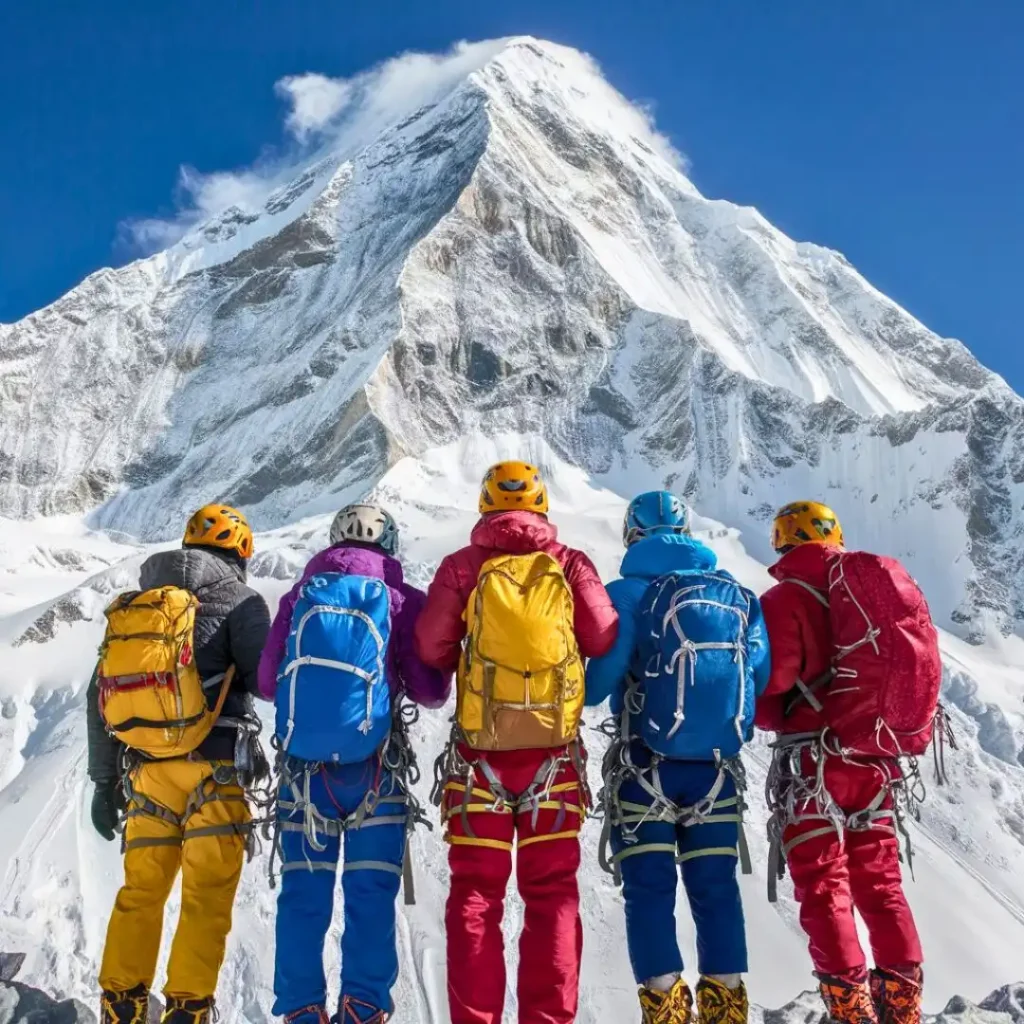In a major move to regulate and enhance mountaineering activities, the Government of Gilgit-Baltistan has introduced new fees for mountaineering and trekking permits, with a particular focus on K2 expeditions.
The iconic K2, the second-highest peak in the world, is a significant draw for both foreign and local climbers, and these new fees reflect the government’s efforts to streamline operations and improve safety standards.
For foreign climbers aiming to conquer K2, the permit fees have increased sharply. Climbers will now pay $5,000 for a summer ascent, $2,500 in the autumn, and $1,500 during the winter months.
Meanwhile, local Pakistani climbers will be charged Rs100,000 in the summer, Rs50,000 in the autumn, and Rs30,000 in the winter. These adjustments are aimed at reflecting the growing demand for K2 climbs while ensuring that necessary resources are allocated to preserve the mountain’s environment and safeguard the welfare of all involved.
In addition to the increased permit costs, trekking fees for foreigners have also risen, affecting those who wish to explore the region without summiting the peak. The introduction of individual fees, which replace the old system of collective permits, means that climbers will now face nearly double the costs by 2025, as the government phases in these changes.

One of the key components of the new regulations is the imposition of a group size limit of 20 members. This limitation aims to better manage the influx of climbers during peak seasons, ensuring a more sustainable and organized approach to expeditions.
Moreover, the government has mandated that all porters must be insured, an important step toward improving the welfare and safety of the local workforce that supports these challenging expeditions.
These changes are set to take effect immediately, giving climbers ample time to plan their expeditions accordingly. With the permit fee increase, the government hopes to improve the overall experience of mountaineering in the region while ensuring the protection of K2’s delicate ecosystem.
The new policies are also expected to contribute to the long-term sustainability of tourism in Gilgit-Baltistan.
As the global interest in K2 continues to rise, both international and local climbers will need to adjust to these new financial requirements. While the costs have risen, these changes are part of the government’s broader initiative to regulate and professionalize the mountaineering industry in Pakistan, which plays a significant role in the country’s tourism sector.
By raising permit fees and implementing stricter regulations, the Government of Gilgit-Baltistan aims to attract serious climbers while discouraging overcrowding and ensuring the safety of all participants.
The increased funds are also expected to be reinvested into the region’s infrastructure, further improving the services available to climbers and trekkers alike.


